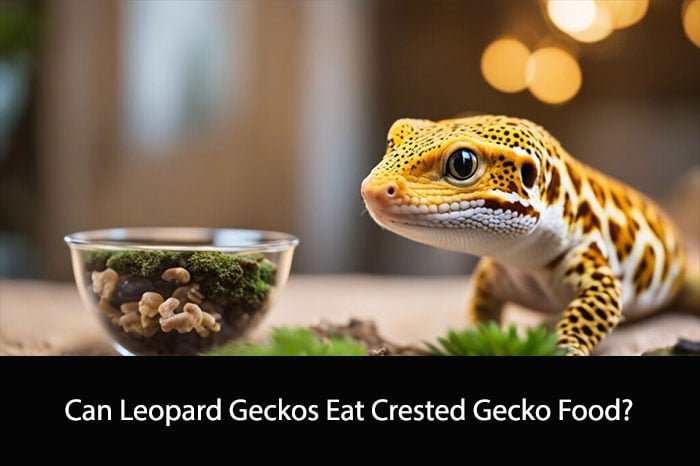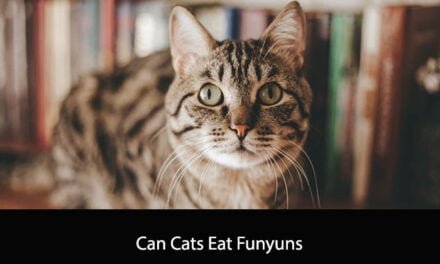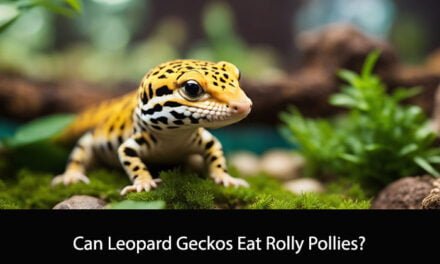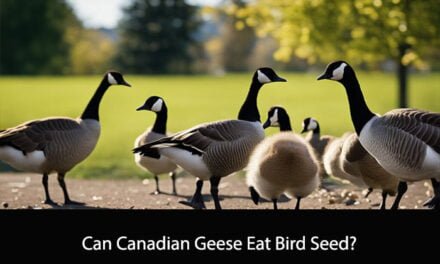Leopard geckos are popular pets due to their docile nature and low maintenance requirements. As with any pet, it is important to provide them with a balanced and nutritious diet. One question that often arises is whether leopard geckos can eat crested gecko food. In this article, we will explore this topic and provide you with the information you need to make an informed decision.
Crested gecko food is a popular option among reptile owners due to its convenience and nutritional value. However, it is important to note that leopard geckos have different dietary requirements than crested geckos. Leopard geckos are insectivores and require a diet high in protein, while crested geckos are omnivores and require a diet that includes both insects and fruits. Therefore, it is important to consider the nutritional needs of your leopard gecko before feeding them crested gecko food.
Leopard Gecko Dietary Basics
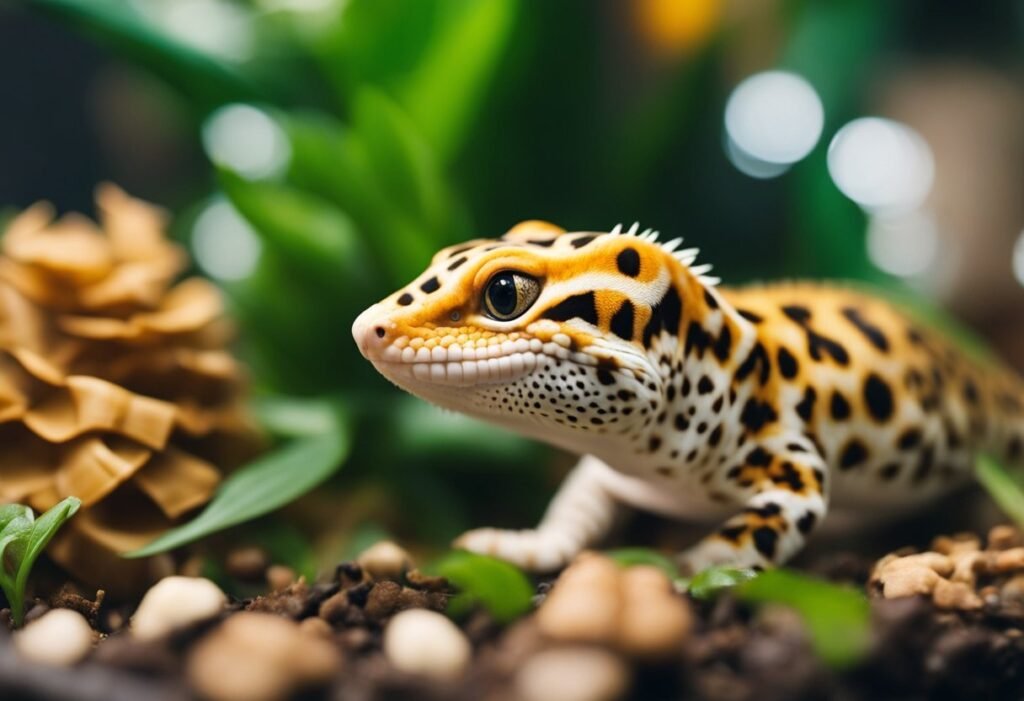
As owners of leopard geckos, we must ensure that our pets receive a balanced and nutritious diet to maintain their health and well-being. In the wild, leopard geckos are insectivores, meaning they primarily consume insects. Therefore, it is essential to provide them with a diet that closely mimics their natural diet.
A balanced diet for a leopard gecko should consist of a variety of insects, including crickets, mealworms, and waxworms. It is important to note that leopard geckos should not be fed wild-caught insects as they may contain parasites or pesticides that can harm your pet.
In addition to insects, leopard geckos can also be fed commercially available insect-based diets. These diets are specially formulated to provide all the necessary nutrients that a leopard gecko requires. However, it is important to note that these diets should not be the sole source of food for your pet and should be supplemented with live insects.
It is also important to ensure that the insects you feed your leopard gecko are appropriately sized. The size of the insects should be no larger than the space between your pet’s eyes. Feeding your leopard gecko insects that are too large can result in impaction, which can be fatal.
In conclusion, a balanced and nutritious diet is essential for the health and well-being of your leopard gecko. As responsible owners, we must ensure that our pets receive a diet that closely mimics their natural diet and provides all the necessary nutrients. By following these dietary basics, we can ensure that our leopard geckos live long and healthy lives.
Crested Gecko Food Composition
Crested gecko food is a popular choice for many reptile owners, but can leopard geckos eat it? To answer this question, we first need to understand the composition of crested gecko food.
Crested gecko food is typically a commercial diet made up of a variety of ingredients, including fruits, insects, and vegetables. These ingredients are blended together to create a nutritionally balanced diet for crested geckos.
The exact composition of crested gecko food can vary between brands, but most will contain a mix of protein, fat, and carbohydrates. Some brands may also include additional vitamins and minerals to ensure that the diet is complete and balanced.
One important thing to note is that crested gecko food is specifically formulated for crested geckos and their nutritional needs. While leopard geckos may be able to eat some of the same ingredients found in crested gecko food, it is not a complete and balanced diet for them.
In summary, crested gecko food is a commercial diet made up of a variety of ingredients that are blended together to create a nutritionally balanced diet for crested geckos. While leopard geckos may be able to eat some of the same ingredients, it is not a complete and balanced diet for them.
Nutritional Requirements for Leopard Geckos
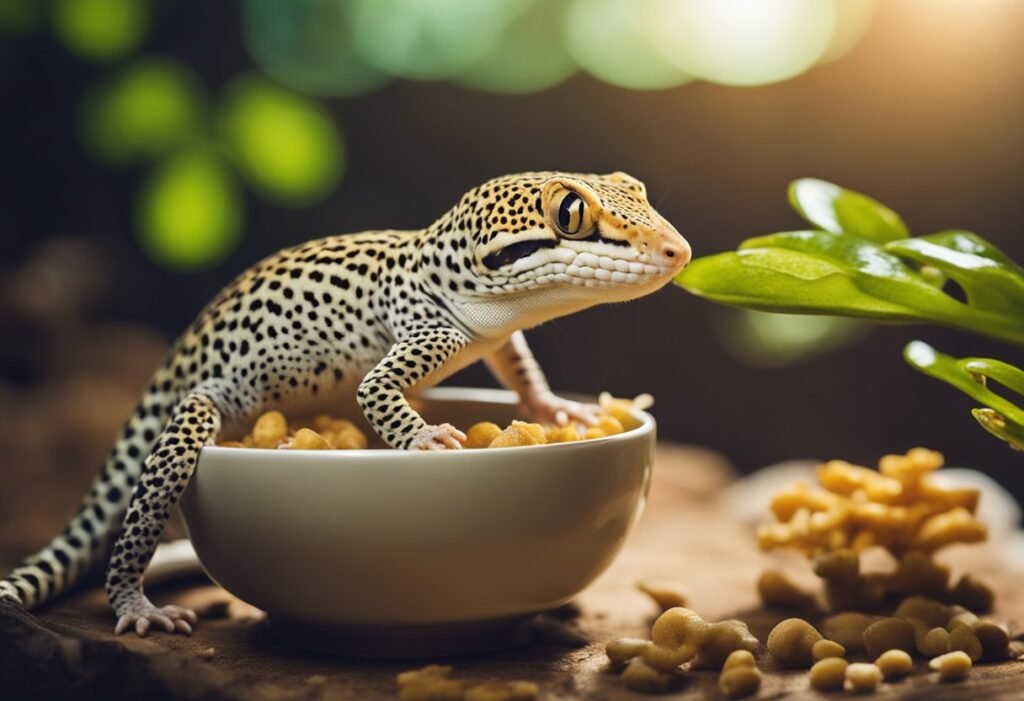
As leopard geckos are insectivores, their primary source of nutrition comes from insects. They require a diet that is high in protein and low in fat. In addition to insects, they may also eat small amounts of fruits and vegetables, but these should not make up a significant portion of their diet.
Leopard geckos require a variety of insects in their diet to ensure they receive a balanced mix of nutrients. Some suitable insects include crickets, mealworms, waxworms, and roaches. It is important to feed them insects that are appropriately sized for their body, as feeding them insects that are too large can cause digestive issues.
In addition to a varied diet of insects, leopard geckos also require access to clean water at all times. It is recommended to provide a shallow dish of water that is changed daily to ensure it remains clean and free of bacteria.
Supplements are also an important aspect of a leopard gecko’s diet. Calcium and vitamin D3 supplements should be provided to help prevent metabolic bone disease. These supplements can be dusted onto the insects before feeding or provided in a separate dish.
Overall, it is important to provide a balanced and varied diet for leopard geckos to ensure they receive all the necessary nutrients for optimal health.
Risks of Feeding Crested Gecko Food to Leopard Geckos
When it comes to feeding leopard geckos, it is important to provide them with a balanced diet that meets their nutritional needs. While crested gecko food may seem like a convenient option, there are several risks associated with feeding it to leopard geckos.
Firstly, crested gecko food is formulated specifically for crested geckos and may not contain the necessary nutrients that leopard geckos require. Leopard geckos have different dietary requirements compared to crested geckos, and feeding them the wrong diet can lead to health problems such as metabolic bone disease.
Additionally, crested gecko food may contain ingredients that are harmful to leopard geckos. For example, some crested gecko foods contain high levels of oxalates, which can bind to calcium and prevent its absorption. This can lead to calcium deficiency, which is a common problem in leopard geckos.
Furthermore, crested gecko food may be too high in fat for leopard geckos, which can lead to obesity and other health problems. Leopard geckos require a diet that is low in fat and high in protein, and feeding them crested gecko food may disrupt their nutritional balance.
In conclusion, while crested gecko food may seem like a convenient option for feeding leopard geckos, it is important to consider the risks associated with it. Feeding leopard geckos a diet that is not formulated for their specific needs can lead to health problems and should be avoided. Instead, it is recommended to feed leopard geckos a diet that is specifically formulated for their nutritional requirements.
Safe Dietary Alternatives for Leopard Geckos
As leopard geckos are insectivores, their diet consists mainly of insects. However, some leopard gecko owners may wonder if they can feed their geckos crested gecko food as a dietary alternative.
While crested gecko food is safe for crested geckos, it is not recommended for leopard geckos. This is because leopard geckos require a high protein diet, whereas crested gecko food is primarily composed of fruits and insects.
Instead, there are several safe dietary alternatives for leopard geckos. These include:
- Crickets: A staple in a leopard gecko’s diet, crickets are high in protein and easy to digest. They can be purchased at most pet stores and should be gut-loaded before feeding to provide additional nutrients.
- Mealworms: Another high protein option, mealworms can be purchased at most pet stores and are easy to breed at home. They should be fed a nutritious diet before being fed to leopard geckos.
- Dubia roaches: These roaches are high in protein and low in fat, making them an excellent dietary option for leopard geckos. They can be purchased online or at some pet stores.
It is important to note that leopard geckos should not be fed wild-caught insects, as they may contain harmful pesticides or parasites. Additionally, all insects should be appropriately sized for the leopard gecko to prevent choking or digestive issues.
In conclusion, while crested gecko food may seem like a convenient dietary alternative for leopard geckos, it is not recommended. Instead, owners should stick to a diet consisting of crickets, mealworms, and dubia roaches to ensure their leopard geckos receive the proper nutrition they need.
Frequently Asked Questions
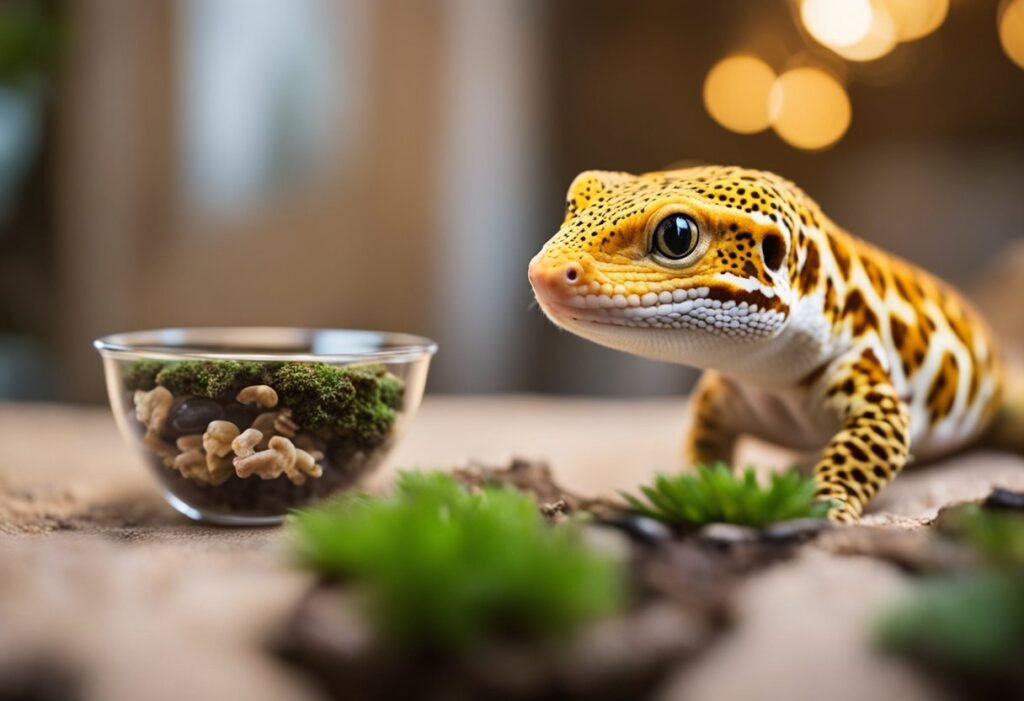
What is the best diet for a leopard gecko?
Leopard geckos are insectivores, which means they primarily feed on insects. The best diet for a leopard gecko includes a variety of insects such as crickets, mealworms, waxworms, and superworms. It is important to offer a balanced diet that includes a variety of insects to ensure your leopard gecko gets all the necessary nutrients.
Is it safe for leopard geckos to eat earthworms?
Yes, earthworms are safe for leopard geckos to eat. They are a good source of protein and can be offered as an occasional treat. However, it is important to make sure the earthworms are not too big for your leopard gecko to eat and that they are not from areas that may have been exposed to pesticides or other harmful chemicals.
Are there any vegetables that leopard geckos can safely consume?
Leopard geckos are primarily insectivores and do not require vegetables in their diet. However, some owners offer vegetables as a treat or to add variety to their diet. Safe vegetables for leopard geckos include carrots, squash, and sweet potatoes. It is important to chop the vegetables into small pieces and offer them sparingly.
What insects are recommended for a leopard gecko’s diet?
Crickets are the most commonly fed insect to leopard geckos and are a good source of protein. Other insects that can be offered include mealworms, waxworms, and superworms. It is important to gut-load the insects before feeding them to your leopard gecko to ensure they are getting the necessary nutrients.
Are there any foods that are toxic to leopard geckos?
Yes, some foods can be toxic to leopard geckos. Foods to avoid include avocado, rhubarb, and chocolate. These foods can cause digestive issues and even be fatal to your leopard gecko.
What alternatives can I offer my leopard gecko besides crickets?
There are several alternatives to crickets that can be offered to your leopard gecko. Mealworms, waxworms, and superworms are all good options. You can also offer your leopard gecko roaches or silkworms. It is important to offer a variety of insects to ensure your leopard gecko is getting all the necessary nutrients.

